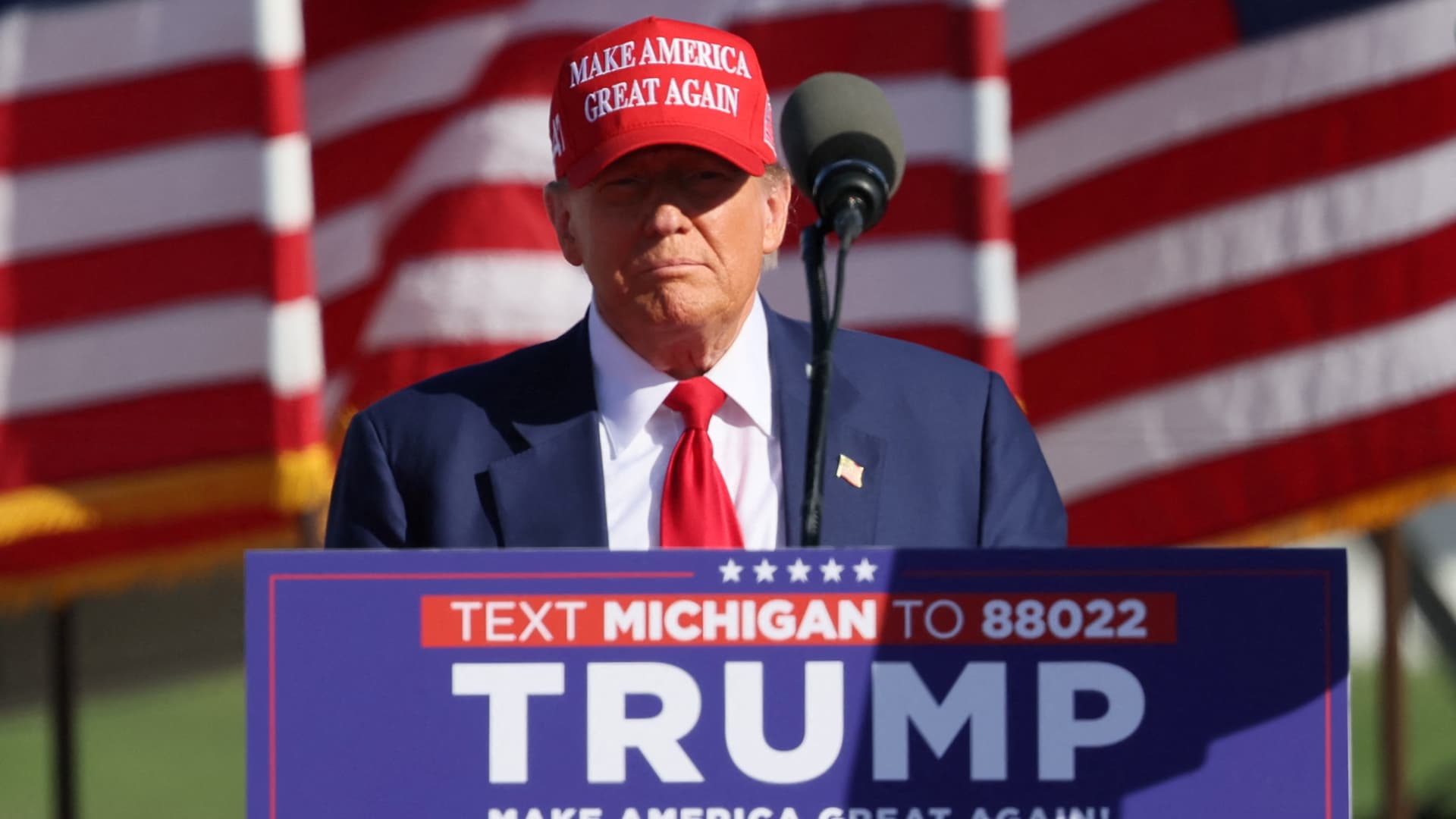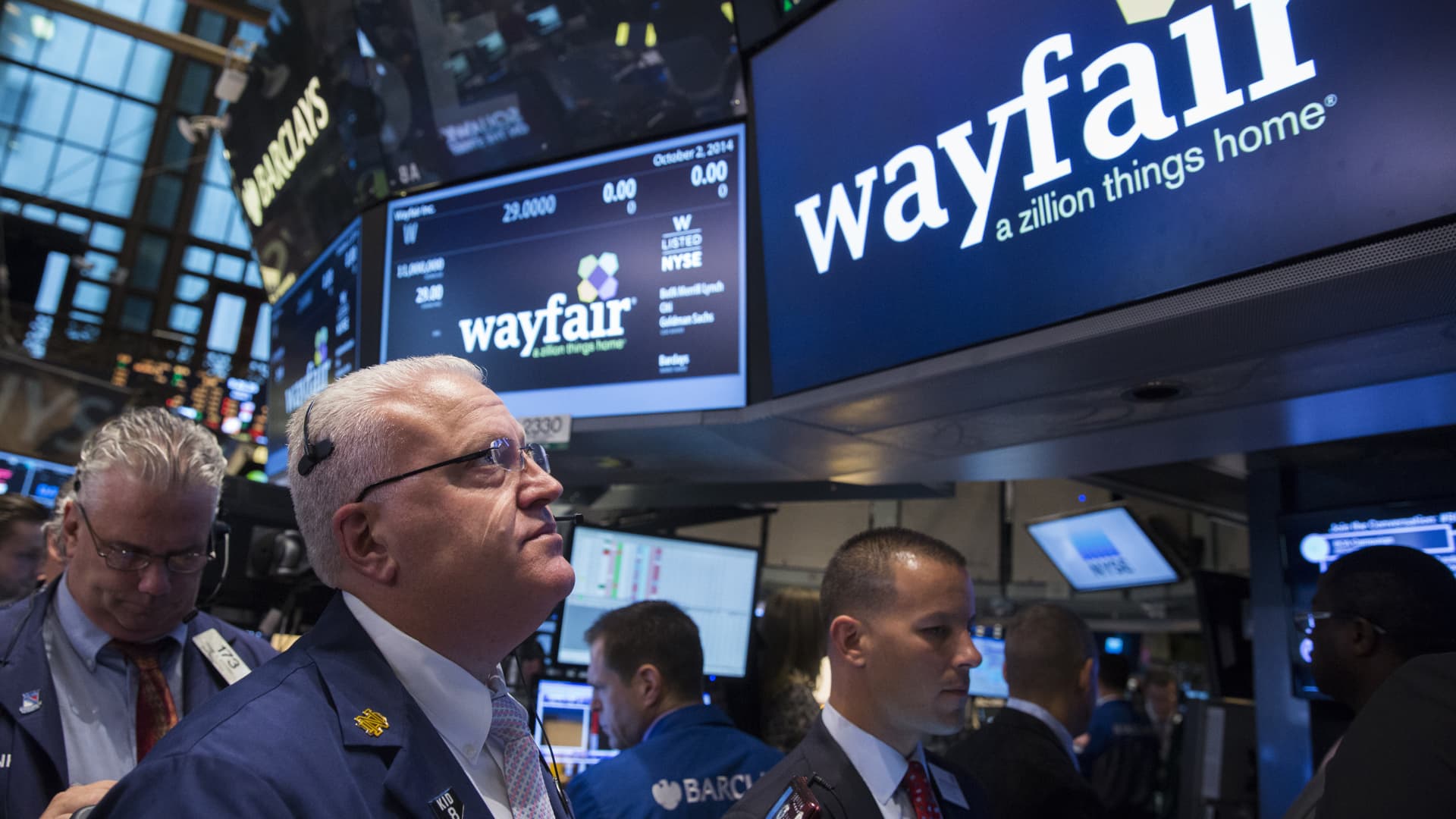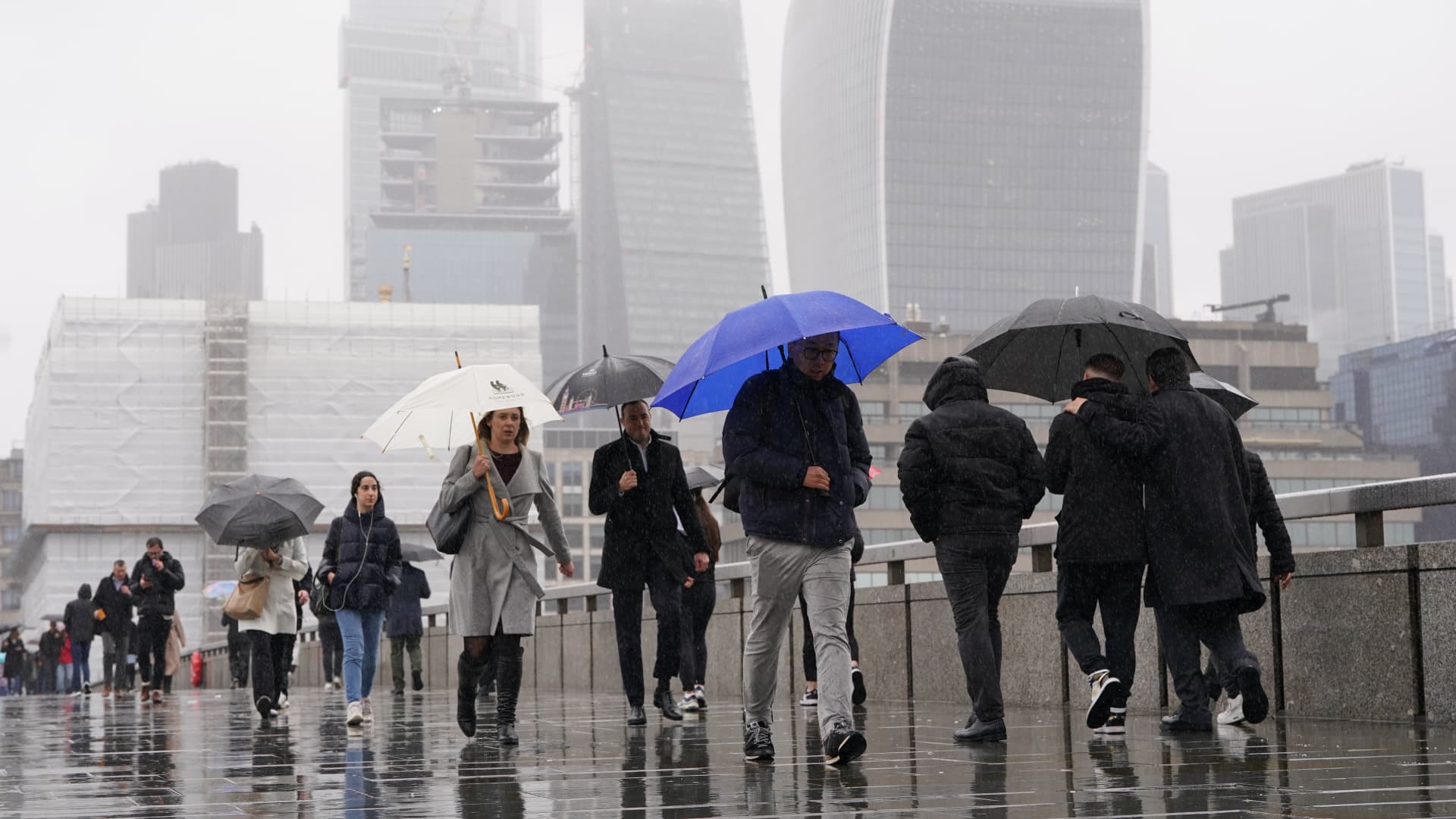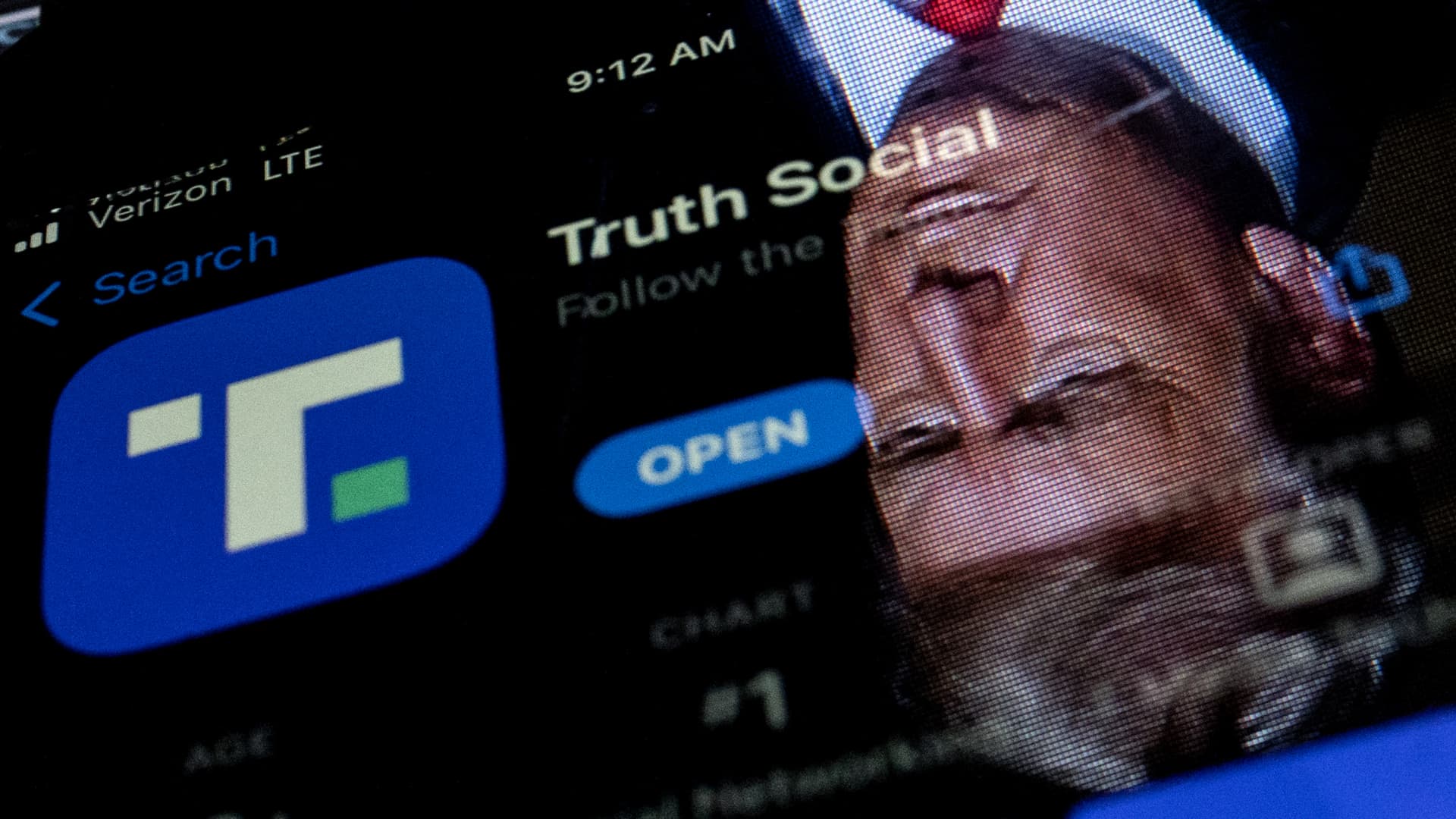In Detroit, a congressman’s Christmas party descended into chaos and a broken nose after demonstrators used megaphones to protest the war in Gaza.
In Fort Collins, Colorado, the mayor abruptly ended a meeting where protesters demanding a ceasefire in Gaza taped their hands to a wall.
And in places as diverse as a historic church in South Carolina and the Radio City Music Hall in Manhattan, President Biden was heckled and drowned out by demonstrators protesting his support of Israel.
Protests over the Biden administration’s handling of the war are disrupting the activities of Democratic officials from city halls to Congress to the White House, complicating their ability to campaign – and sometimes govern – in a crucial election year.
Mr. Biden successfully avoided a chaotic primary campaign because he faced no viable opposition within his party. Still, the Gaza conflict has heightened intra-party tensions and Democrats fear that a sustained protest movement against a war thousands of miles away could depress voter turnout at home in November.
“If you now organize people to turn away from supporting the president, then you are now in effect supporting and helping Trump,” Sen. John Fetterman of Pennsylvania, a Democrat who has disappointed progressives with his steadfast support of Israel, said in one Interview this past week. “If you want to play with fire in this way, you have to master combustion.”
Many supporters of the Palestinian cause argue that Mr. Biden must earn their votes — and that the death toll and suffering in Gaza should transcend concerns about electoral politics.
“With all of Donald Trump’s political threats on the horizon, it should tell you something about how deeply people feel about what’s happening,” said Rev. Michael McBride, one of the founders of Black Church PAC, which has pushed for a ceasefire.
Nationwide efforts to pressure U.S. leaders to curb their support for Israel have focused almost exclusively on Democrats, with former President Donald J. Trump rarely – if ever – facing significant criticism from pro-Palestinian protesters in his house or at public appearances. Mr. Trump has said little of substance about the conflict other than that Israel should “end” the war.
Violent protests and strict security precautions
Mr. Biden has taken an increasingly tough stance toward the Israeli government, threatening on Thursday to condition future support on how it handles civilian casualties and the humanitarian crisis in Gaza.
But he still faces heavy criticism.
At a White House gathering for Ramadan last week, a Palestinian-American doctor – one of the few Muslim community leaders who agreed to attend – walked out of the gathering in protest after telling Mr Biden about Israel’s impending ground invasion of Rafah would be a “bloodbath” and a massacre.”
Pro-Palestinian demonstrators have protested for weeks outside Secretary of State Antony J. Blinken’s home, spilling jars of fake blood and shouting at him and his family.
And even innocuous photos posted by the White House on social media — of children rolling Easter eggs or freshly planted tulips — are flooded with comments accusing the government of complicity in mass killings and famine in Gaza.
In recent weeks, Biden campaign officials have stepped up efforts to control access to his events. On the eve of Mr. Biden’s big-ticket fundraiser for Radio City last month, dozens of ticket buyers whom the Biden campaign had identified as potential Gaza protesters received notices from the campaign canceling their purchases, according to campaign officials and members of Jewish Voice for Peace, a progressive anti-Zionist group that has been protesting Biden events.
“Unfortunately, we are unable to accommodate you at this time and have refunded all tickets associated with your email address,” the unsigned email said. “This decision is final.”
Carole Shreefter, a retired ultrasound technician from Upper Manhattan, paid $250 for a ticket to the back of the first mezzanine. A member of Jewish Voice for Peace, Ms. Shreefter, 78, said she planned to disrupt the event by shouting at Mr. Biden and his two Democratic predecessors on stage about the war in Gaza.
She passed through two checkpoints and was in the lobby of the theater when she was told her seat had been changed. Ms. Shreefter said she was directed outside to what Biden officials called the “solutions tent.” There she was told that she was not allowed in.
“I said, ‘What’s going on?'” Ms. Shreefter said in an interview. “‘I waited here for hours in the rain. I have my ticket, everything is there.’”
Lauren Hitt, a spokeswoman for the Biden campaign, said the “solutions tent” was staffed by officials from the Biden Victory Fund, an allied group, and Radio City Music Hall. The main purpose, she said, is to help people with ticket problems, not to get rid of potential troublemakers.
Some demonstrators actually made their way into the hall, where they repeatedly disrupted Mr. Biden’s joint appearance with former Presidents Bill Clinton and Barack Obama.
One protester, Hannah Ryan, 33, a photographer from Brooklyn, said she was caught by the campaign, asked a series of questions about people she knew and how she got her ticket, and then was allowed in. She shouted at Mr. Obama, who told her and other protesters, “You can’t just talk and not listen.”
Georgia Johnson, a registered Democrat from Manhattan, said she voted for Mr. Biden in 2020 but was hesitant to support his re-election bid unless the administration took a less supportive stance toward Israel.
“A lot of people here are tired of having to choose between what they think is the lesser of two evils,” said Ms. Johnson, 28, as she joined the hundreds of protesters who had gathered outside the event. “What he’s doing doesn’t strike me as the lesser of two evils. It feels like something very evil.”
“I met her. I answered their calls.’
Other elected Democrats also struggled to avoid the protesters.
In Santa Ana, California, Rep. Lou Correa’s family and neighbors are increasingly frustrated by loudspeakers, megaphones and shouts from protesters gathering on his suburban street as early as 6:30 a.m.
Mr. Correa, a Democrat who is frequently in Washington during the protests, urged the local city council to support an emergency ordinance requiring activists demonstrating outside private homes to maintain a distance of 300 feet (90 meters). The proposal was not accepted.
“I’ve been meeting with them – I’ve been taking their calls, I’m responding to their emails, and now they’re saying they’re at my house because they want to meet with me and I won’t come out,” said she Mr. Correa added that he supported negotiations to end the war and a two-state solution to the broader conflict. “Look, I’m an elected man. I get it. But why is it in the neighborhood? Why is it the family? Why are they my neighbors? That’s what I don’t understand.”
Some of the most contentious clashes have taken place on deeply democratic terrain. A recent city council meeting in Berkeley, California, turned ugly when protesters interrupted a Holocaust survivor during a meeting where members were discussing a Holocaust Remembrance Day bill.
Rep. Shri Thanedar, a Democrat from Michigan, said he was shocked when more than two dozen attendees at his Christmas party in a crowded Detroit restaurant took off their jackets to reveal pro-Palestinian shirts. When they began chanting through a megaphone, physical altercations broke out. An elderly woman was taken to hospital with a broken nose.
“Seeing the deaths in Gaza is heartbreaking,” said Mr. Thanedar, who supports a “negotiated ceasefire” that would release Israeli hostages and end the military operation. “But if they want to raise awareness, hurting older people doesn’t necessarily help them get the support they need.”
And in Danbury, Connecticut, the city council president described being surprised by protesters demanding a ceasefire from the city of about 90,000 residents.
“Where do I think you are addressing this concern?” said Peter Buzaid, the council president. “They would go to the senator’s office. They could go to the congressman’s office and protest in front of the White House. Right? You could go to the UN. I didn’t think this would happen in our local council chambers.”
Fort Collins Mayor Jeni Arndt said she knows the emotional toll of the war but wonders what impact local action on the issue will have.
“I don’t think Antony Blinken is going to say, ‘Oh, the mayor of Fort Collins just said that,'” she said. “If it doesn’t impact members of our community and cause division, I don’t think I should do it.”
Lowering the temperature
In some places the protest tactics were successful.
In Ann Arbor, Michigan, a group of protesters has been coming to city council meetings for years to demand a resolution denouncing Israel’s policies toward the Palestinians. Six years ago, Mayor Christopher Taylor was shouted down as he tried to read a gun violence awareness resolution by protesters who demanded to know why he didn’t mention the killings of people in Gaza.
Mr. Taylor, mayor since 2014, has long argued that Israel and other foreign policy issues are not the city’s concern. But given the never-ending protests since the Hamas attack on October 7, he and the council agreed and passed a resolution calling for a ceasefire. The temperature dropped and most protesters stopped disrupting council meetings.
“Foreign policy is well outside our purview, but special circumstances may arise,” Taylor said. “When community groups experience great pain, we speak in support of those who are suffering.”
Even Sen. Bernie Sanders of Vermont, a progressive hero who broke with the administration and opposed providing additional military aid to Israel, was interrupted by protesters while on a trip abroad.
Mr Sanders has encouraged protesters in the US to support Mr Biden, arguing that Mr Trump would do worse on the issue of Palestinian rights. But he also acknowledged the pain and frustration of the present moment.
“Hundreds of thousands of people have taken to the streets in this country because they are completely outraged by the humanitarian catastrophe that is currently unfolding in Gaza,” he said. “You’re right.”
Julian Roberts-Grmela contributed reporting.
Source link
2024-04-07 11:09:59
www.nytimes.com














